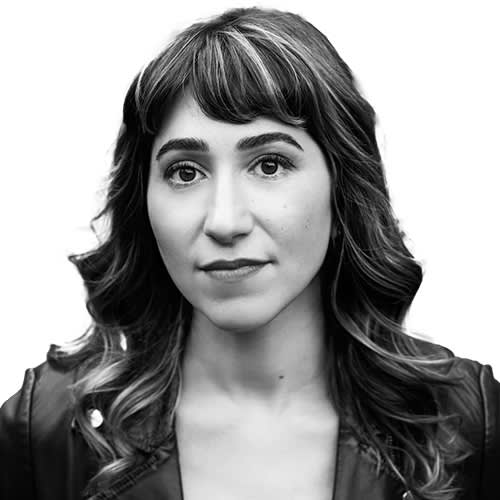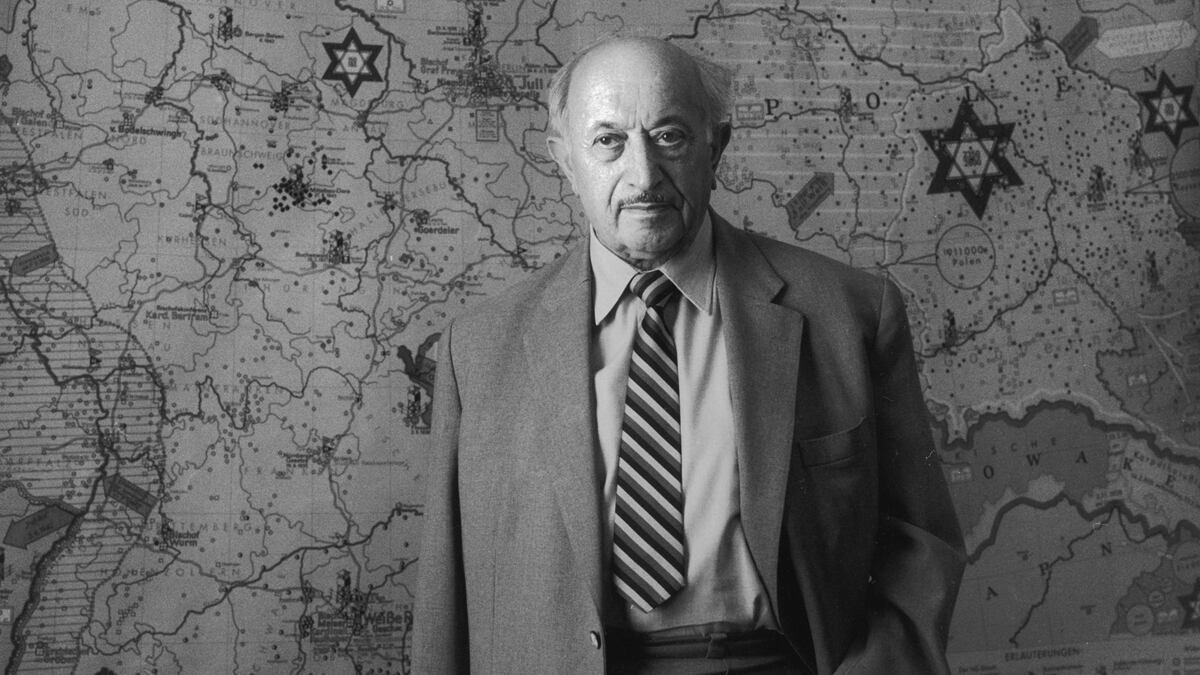Jews and Mormons are once again battling over Mormons’ posthumous baptisms of Holocaust victims, and it’s not the last time the groups will spar.
The Church of Latter-day Saints apologized Tuesday for posthumously baptizing Nazi-hunter Simon Wiesenthal’s parents amidst much Jewish vitriol. But despite more than two decades of negotiations and agreements between the two groups to prevent such baptisms of dead Jews, the practice persists.
These by-proxy ceremonies (where the living dip themselves to represent the dead) are so integral to abiding Mormon life that, as one Brigham Young professor and practicing Mormon put it, “I don’t see any way that we can ever ultimately say we’re not going to do it for people.” But LDS leaders continue to make promises to Jewish leaders that they do not keep. A combination of philosophy and technology may be to blame.
ADVERTISEMENT
An unwieldy genealogical database operated by the LDS church called Family Search is at once a public registry for ancestry research, calling itself the “largest genealogy organization in the world,” and a receptacle for church members to nominate deceased individuals to receive baptism rights. The lack of policing of its users and content may be partially to blame for some continued posthumous baptisms of Holocaust victims and perhaps for the mistaken request for a baptism of the very-much-alive writer, Elie Wiesel.
Regular checks of Family Search by a researcher who has been called the “Erin Brockovich of posthumous genealogy,” Helen Radkey, revealed the baptisms of the Wiesenthals and the alleged targeting of Wiesel. Also a disaffected Mormon, Radkey is sure the church does not want the secular public meddling in the “junkyard of records,” which contains millions of names of living and dead people and bears an understandable margin for error.
“It’s such a quirky practice,” she said of the posthumous baptisms, which many Mormons believe are an act of reverence and love. “What’s happened is that Mormons have gone underground.”
The obligations for church members are in plain view, but that doesn’t mean all follow them. Mormons must “perform vicarious temple ordinances for their own deceased family members,” through entering them on Family Search. Since there is no monitoring of entries, Radkey says, they can include anybody, alive, dead, or imagined, despite church rules against entering non-family people. However, Family Search does instruct specifically that LDS church members do not submit for posthumous baptism “celebrities or Jewish Holocaust victims.” Still, Radkey said she has found in her scouring of the registry everyone from Jesus Christ to 9/11 plane hijackers to Mickey Mouse. She says sometimes baptisms occur of names that are misspelled or changed purposely to game the system, say, Jeus Christ without the first “s.”

Since Mormons believe that everyone deserves the baptism, the instructions for entries do encourage guessing: “submit names of persons who have probable family relationships that cannot be verified because records are inadequate, such as those who have the same surnames and resided in the same areas as known ancestors,” they read. Multiple baptisms have been performed on the same deceased person—causing Mormons to wonder which one counts—and the ritual has been given to parties allegedly removed from the system.
Brigham Young professor Daniel Peterson likened the technological glitches in the New Family Search system to shifting Wikipedia entries changed daily by users, or old voter registries that feature dead individuals among those eligible to vote. To Peterson, the baptism is sacred and willingly blind to religion. “We take it literally,” he said. “Everybody has to receive this. Everybody hasn’t.”
Jewish and Mormon leaders first devised a pact to stop all baptisms of dead Jews in 1995, but soon after, Radkey made public that the church had reneged. More recently, Jewish and LDS leaders agreed to halt baptisms specifically of Jewish Holocaust victims in September 2010. Since the baptisms indeed linger, Jewish groups’ and leaders’ feelings are a mix of deeply offended and angry.
Holocaust victims’ only crime was that they were Jews. Now [the church] is basically killing them again by eliminating their Jewishness,” said Anti-Defamation League director Abraham Foxman, who also was part of an interfaith coalition to address the subject. He likens the situation to earlier quarrels between Jews and the Catholic Church over Jewish legitimacy, and says that, like the Catholics, the Mormons will come around and work to smooth their relationship with Jews.
“It’s important for them to know that we’re watching,” he said. “That’s how you keep people honest.”
Both Foxman and Rabbi Abraham Cooper, associate dean of the Simon Wiesenthal Center, agree that the church knows what it is doing, and that any efficacious solution must come from education and messaging within the church.
“I have nothing left to say to them,” said Cooper. “I don’t want to schlep aging survivors to another meeting. This wound remains open.”
Peterson, a Middle East expert who identifies as pro-Israel, insists that the posthumous baptisms, performed in about 130 LDS temples, honor all non-Mormons, including Jews, but he sees how the action would seem weird to outsiders.
“All we’re doing is dunking someone and saying a prayer or doing a ritual,” he said. “Being upset about it presumes that we have an effect.”
Mormons believe that baptizing the dead allows them entry into God’s kingdom, but that the recipients can choose whether or not to accept the service. So why do non-Mormons care so much if they don’t believe in the sacrament in the first place?
To Jewish genealogist Gary Motokoff, the conversation is over one word: baptism. It reminds Jews of “persecution by Christians where Jews were given the choice of being baptized or being murdered,” he wrote in an email. “Holocaust victims were murdered for only one reason: they were Jews.” Motokoff met with LDS officials in the 1990s about the issue, but was not part of the 2010 agreement.
Mormons have long had a unique relationship with Jews, aside from both being religious minorities. The Mormons liken the Jews’ pilgrimage through the desert to their own trek to reach Salt Lake City, and Peterson said anti-Semitism is specifically warned against in the Book of Mormon.
Perhaps the most famous Mormon in the U.S. today, Republican presidential candidate Mitt Romney, has stayed mum on the deceased-baptism issue. In an email, a spokesperson for Romney’s campaign echoed the position the candidate has adopted in many interviews—that questions about the church should be directed to the church. The posthumous-baptism procedure is irreversible, despite theatrical attempts by television host Bill Maher to undo the deed done to Romney’s notoriously atheist father-in-law.
Despite apologies, agreements, or sanctions—such as the rebuke given to the anonymous church member who baptized Asher and Rosa Wiesenthal, Jews seem to have few choices: stay angry, accept, or simply ignore what apparently will remain a regular Mormon religious practice.
“They’ll never able to stop baptism of Jewish Holocaust victims as long as they have these beliefs and procedures,” Radkey said. “As long as Mormons believe all people deserve to live in the presence of God, this will continue.”





